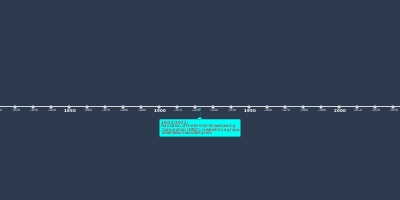History of Social Movements in Britain
Category: Other
Updated: 22 Oct 2018
Contributors

Created bylucy short
Attachments
Events
First Wave Feminism:
Production of 'The Revolution
Magazine Publication' by Elizabeth
Stanton and Susan Anthony (US)1906:
Suffragette was used to describe women
campaigning for the right to vote1928:
Women given the right to vote
over the age of 21 (the same as men)1931:
Formation of the family planning association1945:
After the war; 460k in military, 6.5m in civilian work1970:
First British conference following
the Women's Liberation Movement
(Oxford) for employment legislation1963:
Abortion Act Introduced1983:
Equal pay for Work (equal pay amendment)
for the Equal pay act1997:
120 women win seats in
the General Election2001:
Introduction of the bill from the
government to improve women's
political representation.1918:
Representation of the People Act 1918, provided the right for women aged over 30 to vote.1920:
The Flapper Movement:
a generation of young Western
women in the 1920s who wore
short skirts, bobbed their hair,
listened to jazz, and flaunted
their disdain for what was then
considered acceptable behavior.1903:
The Women’s Social and Political Union is founded in Manchester by
Emmeline Pankhurst1920:
The Second Wave Feminist Movement1970:
Women's Strike for Equality Demonstration
(26th August), New York1971:
The short-lived feminist art journal Women and Art began publication1972:
Feminist art students staged the provocative exhibit "Womanhouse" in an abandoned house in Los Angeles.1972:
"abortion episode" of "Maude" drew protest letters1972:
Cindy Nemser and other feminist artists founded Feminist Art Journal, which lasted through 1977.1964:
The Married Women’s Property Act
entitles a woman to keep half of any
savings she has made from the
allowance she is given by her
husband.1971:
Over 4,000 women take part in the first Women’s Liberation march in
London1972:
First women's refuge was set up
by Erin Pizzey in London1974:
The Sex Discrimination Act makes it illegal to discriminate against
women in work, education and training.1976:
The Equal Opportunities Commission comes into effect - reflects on Sex Discrimination Act
and Equal Pay Act1977:
International Women’s Day is formalised as an annual event by the UN
General Assembly.1979:
The feminist journal ‘Feminist Review’ is founded.1979:
Margaret Thatcher becomes Britain’s first female prime minister.New
event1980s:
Barbara Kruger1974-1990:
Red Women's Workshop1970:
Chicago Women's Graphics Collective1985:
Guerilla Girls2016:
SNASK Monkifesto
(10th anniversary Campaign)1975:
Martha Rosler;
Semiotics of the Kitchen1971:
Linda Lochlin;
Why have there been no great women artists?1972:
John Berger;
Ways of Seeing1974:
Judy Chicago;
The Dinner Party
Comments